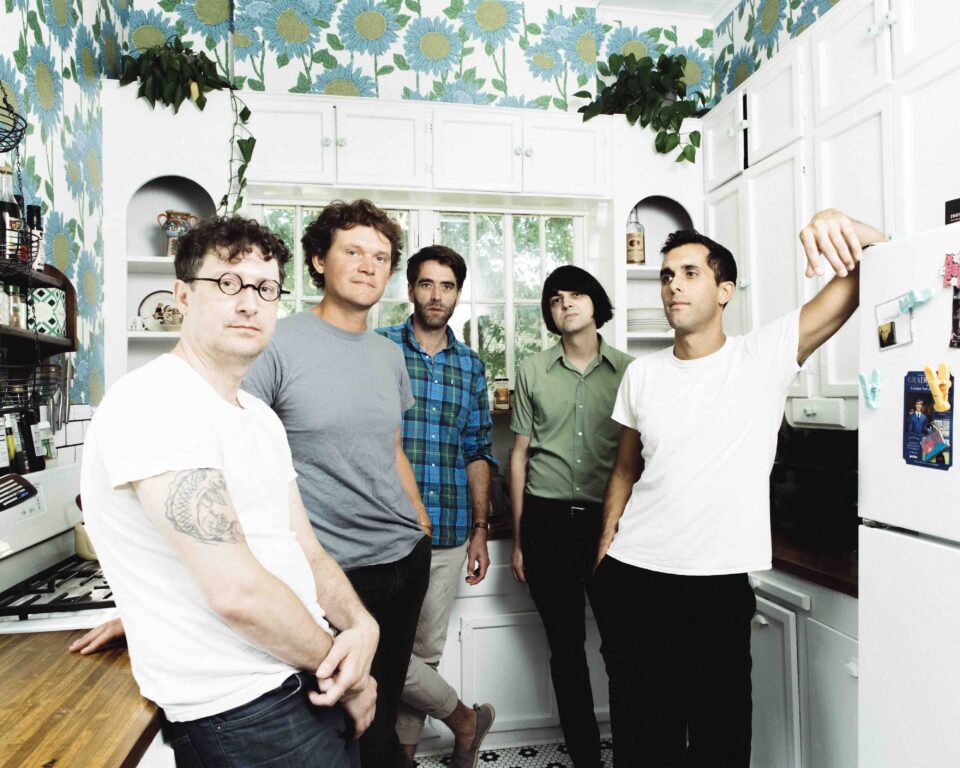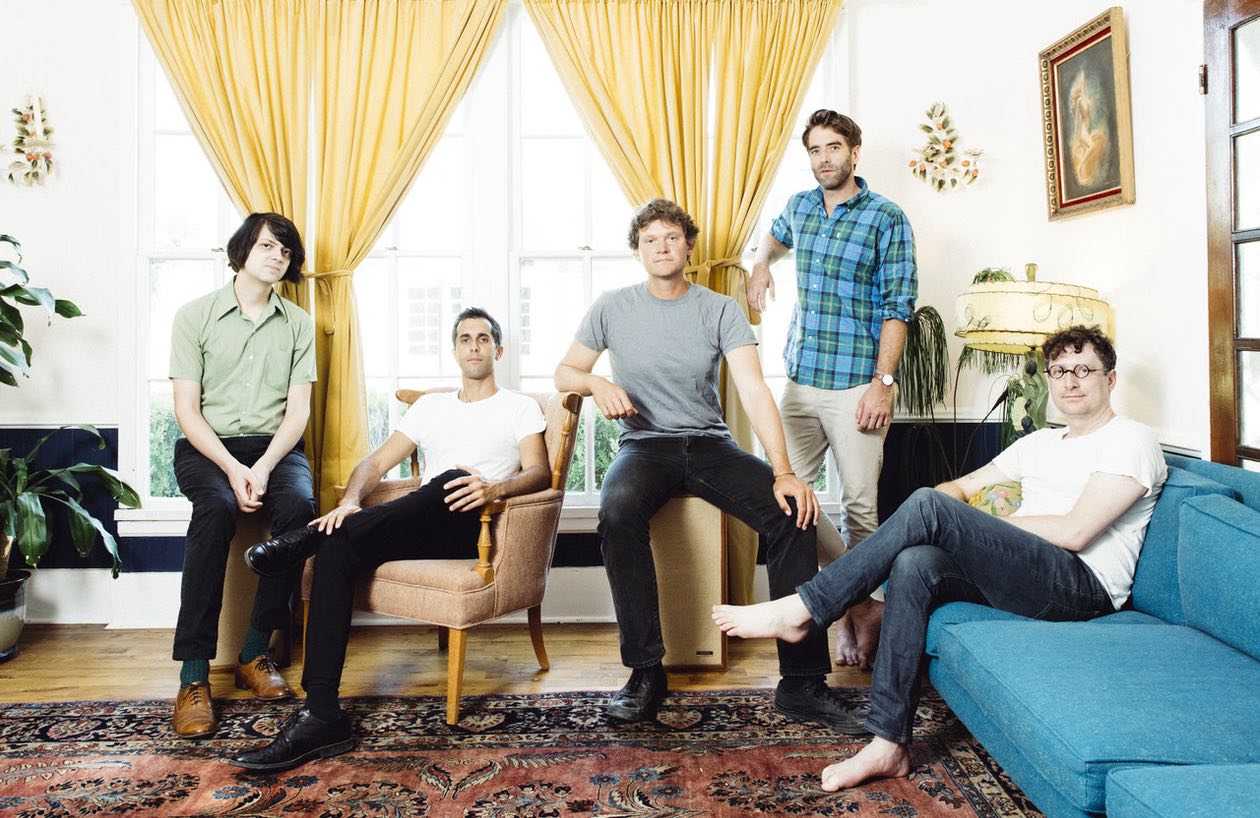In August 2009, Austin indie-pop band Voxtrot released what would turn out to be their last single before calling it quits the following year. For a while, the five-piece had been riding high off the back of their 2007 self-titled debut full-length, but two years on from its release, frontman Ramesh Srivastava didn’t feel there was any of that momentum left. The single itself was called “Berlin, Without Return,” a gorgeous, melancholy lament dripping with existential doubt and uncertainty that beautifully frames both what had been and what had been lost. To that extent, it was—as many of Voxtrot’s songs always were—a rumination on the past from the vantage point of the current moment, a reconciliation between existence and absence.
Its B-side, however, was slightly different. Though similarly graceful, “The Dream Lives of Ordinary People” is an uplifting track firmly rooted in the present. It also begins with a subtle declaration of Srivastava’s sexuality. “Don’t worry, boy, it’s just your queer life,” he sings. “Totally different from your real life.” Later he poses a question, perhaps as much to himself as to the character in the song: “How’s your queer life? Is it killing you?” It was the first and, as yet, only time the frontman referenced his sexuality in a Voxtrot song. And even though he wasn’t ever in the closest, per se, while the band was still together he’d never publicly declared that he was, in fact, gay.
Looking back on the song—which has been re-released as part of Voxtrot’s recent B-sides and rarities collection, Cut From the Stone—Srivastava is aware of its significance. At the same time, he’s uncertain as to whether the person he was in 2009 was deliberately trying to talk about his sexuality. “The weird thing is, I didn’t even feel like I was acknowledging it,” he tells me over Zoom from his home in Austin. “It’s hard to explain, but it didn’t feel like it was a ‘coming out.’ By that point, in my mind, Voxtrot was at such low visibility—I felt like I was just singing songs into empty trash cans. But once you subtract yourself from the equation and just let time and history do its thing, these things have a way of coming up.”
“I think until it gets totally evened out, you need more big statements. I’m trying to think of even one example of a huge, internationally known song by a gay artist that uses ‘he’ pronouns, not ‘you,’ to the person they’re addressing.”
Now together once again, the Voxtrot machine is indeed in motion as the band prepares to hit the road for the first time in over 12 years. And Srivastava is taking the opportunity of that tour, as well as the in absentia increase in the band’s popularity, to be more intentional about that song and his sexuality. That’s because he’s aware that the meaning behind the track—as well as his identity within the indie music scene as a queer person of color—is something to shout about proudly. And while, thankfully, there have been significant advancements in people’s acceptance of the queer community in the years since Voxtrot have been active, there’s still clearly an imbalance.
“I think until it gets totally evened out,” Srivastava says, “you need more big statements. I’m trying to think of even one example—and because I’m a gay man of the LGBTQ+ spectrum, I’m just going to talk about gay male artists—of a huge, internationally known song by a gay artist that uses ‘he’ pronouns, not ‘you,’ to the person they’re addressing. I was trying to think of ballads in the popular canon throughout the decades—we have these massive artists like George Michael and Elton John who are obviously out, but I was trying to think whether there are any songs where people are like, ‘I’m singing about him!’”

That doesn’t, of course, change the emotional gravitas of Voxtrot’s songs, but it does shift the context and dialogue surrounding them, even retrospectively. After all, these aren’t songs about being gay and in love, just love songs sung by a gay man. That doesn’t alter the nature of the love (or loss) being expressed within them, but their existence these days, as opposed to back then, does highlight the shifting cultural landscape, as well as the status quo that for so long made (and to some extent still makes) homosexuality a taboo subject. That attitude is something Srivastava attributes to systemic power structures. But as the conversation widens and the LGBTQ+ community assumes its rightful place within mainstream culture and life, it’s something he hopes will continue to be talked about more—and then, ultimately, with progress, less.
“Homosexuality is so obviously natural, but as long as there’s an idea that nature and god are two separate things, then I think it’s still going to feel like a somewhat uphill climb.”
“I guess the thing I’m looking for the most is for people to understand homosexuality as an intentional function of nature,” he says. “And I think as long as religions utilize the concept of an anthropomorphized god—and particularly a god that is thought of as an actual, and presumably heterosexual, man—and that concept is still living in the minds of otherwise rational, reasonable adults who are sometimes in very high positions of power, they’re at war with the concept of nature. Because homosexuality is so obviously natural, but as long as there’s an idea that nature and god are two separate things, then I think it’s still going to feel like a somewhat uphill climb.
“But if something happens in human consciousness to where there’s no longer a war between the concept of god and nature,” he continues, “and therefore you don’t really need a word even for either one because they’re not separate concepts. It’s just the mystery of life by which things happen—plants grow, the fucking universe exists and evolves and combusts, et cetera.”
That’s not to say that Voxtrot’s mission is now to convince people of all of that. Their music still exists as heartfelt indie-pop songs that will guide you through dark break-ups, soundtrack your deepest losses, and enhance the beautiful and profound life changes we all experience between the cradle and the grave. But to overlook their newfound significance would also be a big mistake. Because, as Srivastava points out, just as sexuality is innate, so is that mystery of life and being human. It all exists within us. These songs, as they always have been, but now also more than they’ve ever been, are his way of trying to understand and come to terms with it all.
“What makes being human so incredible,” says Srivastava, “is that you get to exist in a body that will eventually go away, a timebound, earthbound body. But you have this knowledge and this sixth sense of this unknowable mystery, and you then have to live your life with an awareness of it and kind of try to get back to it across the trajectory of your whole life. Ultimately the thing you’re really searching for is just inside of yourself. But there’s also a divine intelligence—this thing called nature, called god, this thing with really no name—working with you and you are working with it. You are in a reciprocal, mutually symbiotic relationship, and it’s challenging you always toward your growth. And it’s like you’re not really separate things, but you know that it’s a greater force than you. You’ll die never ever being able to explain it.” FL









